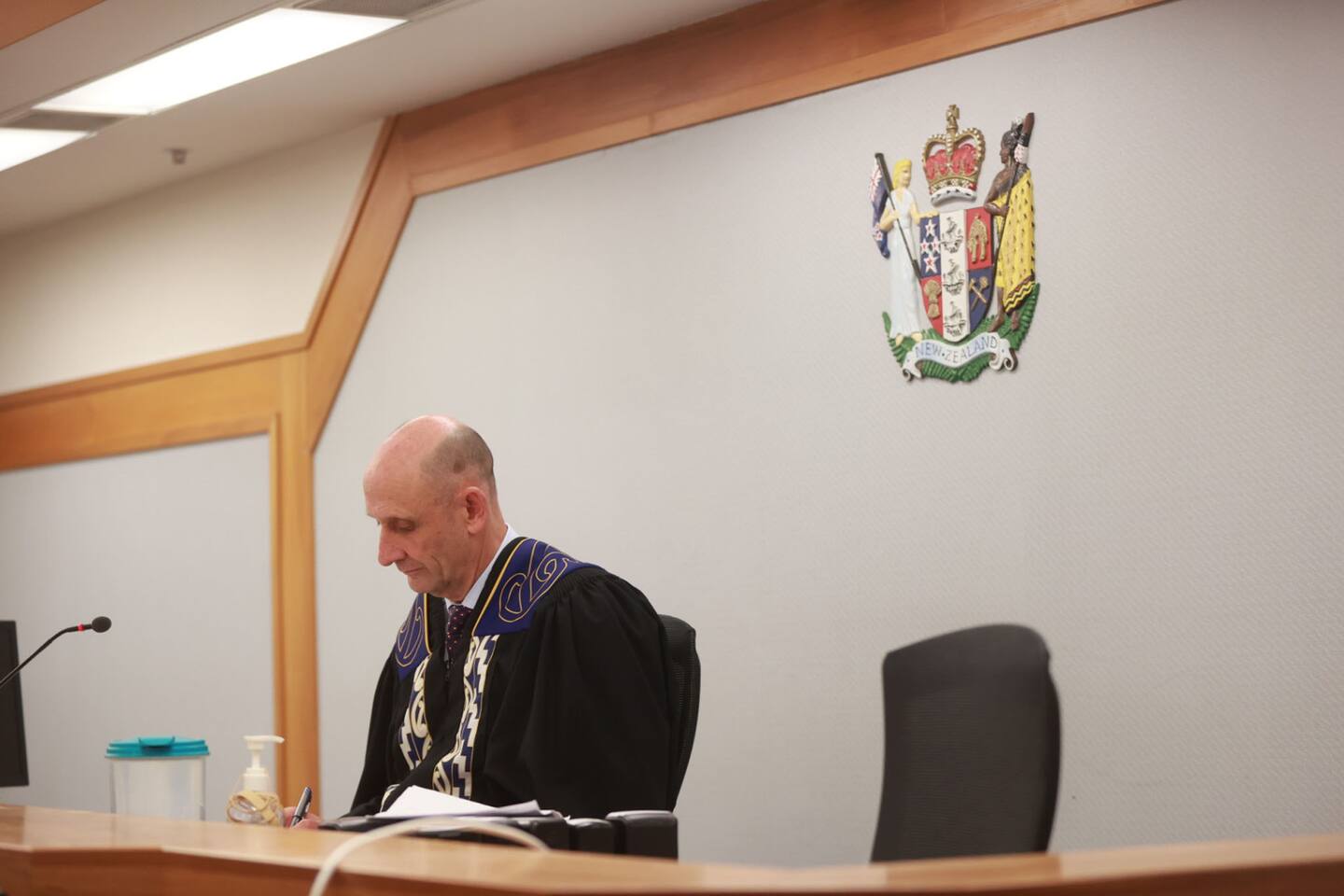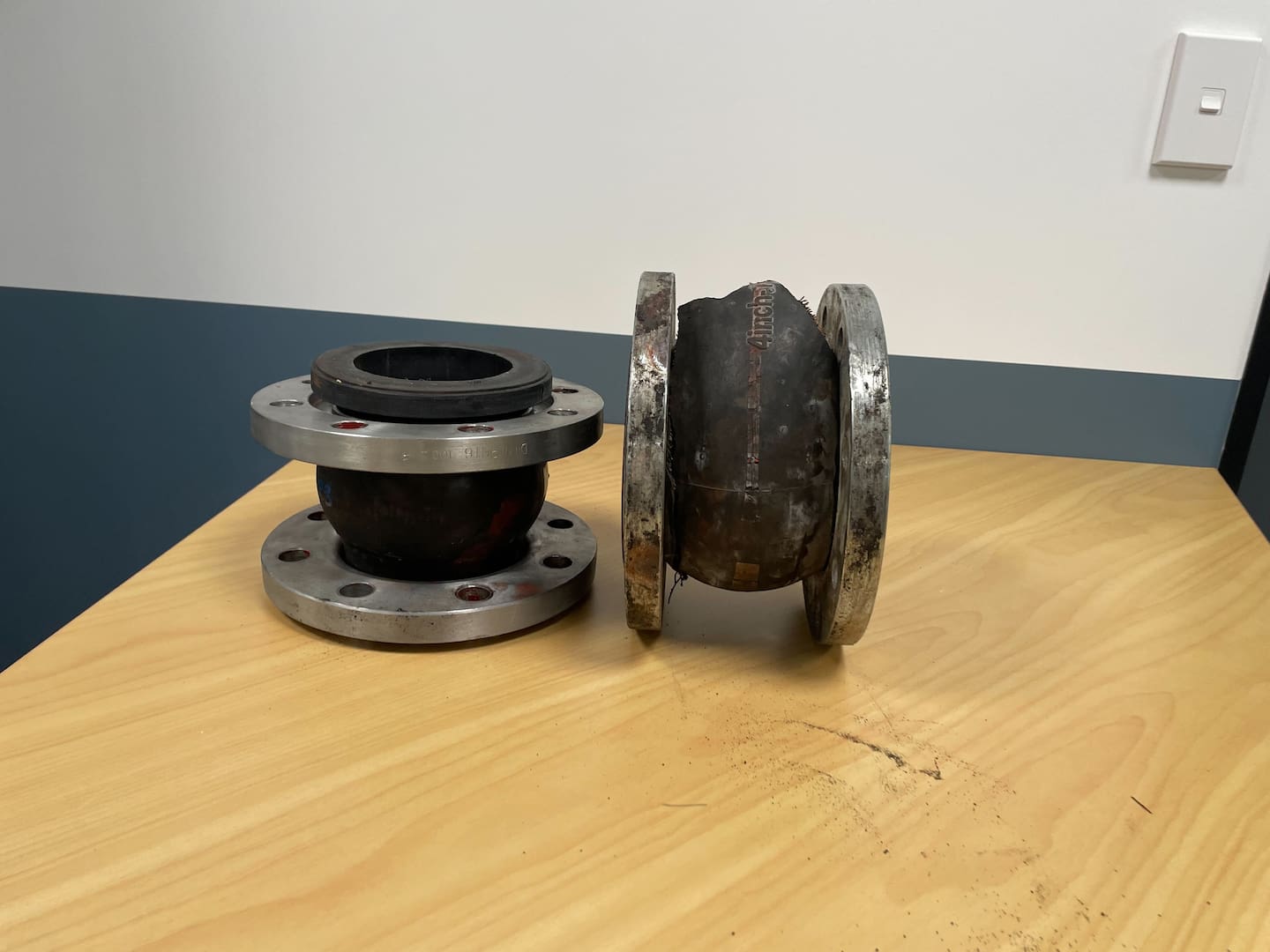- Kiwirail has been fined $412,500 for a mayday incident in early 2023 in which the Kaitaki ferry lost power and began drifting towards shore
- The dramatic event was caused by a faulty compensator that was too old - something which had happened several times before
- Passengers have shared harrowing accounts of fearing for their lives and trying to care for others on board
Sobbing passengers filmed final farewells to loved ones as the Interislander ferry Kaitaki drifted, powerless, towards the rocky shore, a court has heard.
The chaos and fear on board the vessel - including people crying, vomiting, and having panic attacks - has been described in harrowing victim impact statements in the Wellington District Court this afternoon.
Other victims spoke of not truly realising how dangerous the January 2023 mayday incident was until they disembarked, and saw the huge emergency response awaiting on shore.
The details were read out at today’s sentencing for KiwiRail, which operates the Interislander ferry. KiwiRail earlier pleaded guilty to exposing its passengers and crew to harm.
The charge, brought by Maritime NZ under the Health and Safety at Work Act 2015, carries a maximum penalty of a $1.5 million fine.
The Interislander ferry Kaitaki had about 850 people on board when it lost power late in the afternoon on a journey from Picton to Wellington, the summary of facts said.
All of the vessel’s main engines shut down, and it was left with no propulsion and began drifting towards shore from its position about one nautical mile off Sinclair Head. The wind was blowing about 30 knots, with gusts of 45 knots, and the swell was about 3m.
The ship’s master put out a mayday call and began preparing a full evacuation, dropping two anchors as the ferry drifted into anchorable waters.
“Prior to the anchors taking hold a crew member advised Maritime NZ’s Rescue Co-ordination Centre that at their current rate of drift they had about 12 minutes until they reached shallow dangerous waters,” the summary said.
About the same time, the engineering team leapt to action, replacing a high temperature (HT) outlet compensator on the vessel’s diesel generator (DG), which had failed and caused the ship’s cooling water to drain into the bilges.
Once the compensator had been replaced and cooling water system refilled, power was restored, the ferry picked up its anchors, and continued on to Wellington without further incident.
It had been without power for one hour and 10 minutes total.
“I knew our lives were in danger”
There were 16 victim impact statements read out in court today - a fraction of the hundreds of people on board at the time of the incident.
One woman described the moment it began.
“We heard the engines go off. There was silence. We all looked around wondering what happened,” she said in her statement. Then, a message came over the intercom. They expected to be reassured, she said.
“[The message] said ‘We would now like to announce the winner of the children’s colouring competition.’”
Children were encouraged to come forward to receive their prizes. They were still separated from their parents when the alarms went off.
“It seemed to me the left arm did not know what the right arm was doing,” the woman said.
When an announcement came for people to put on life jackets, it sounded as if the woman on the intercom was crying, the victim said.

The Kaitaki ferry's compensators had previously been identified as a risk. Photo / Mark Mitchell
Another woman’s statement said it was a stressful and anxious time, and that she was watching on her GPS as the ferry drifted towards the rocks.
“It was frightening and I only realised how much of an untenable situation we were really in when we disembarked... I cried with relief,” she said.
Many passengers were vomited over the side of the deck as the ferry swayed in the swells.
Another victim said he was on board with his four children, who found the incident “terrifying”.
“One of them was convinced they were going to drown, and cried for some time.”
A year later, all four refused to board a ferry to visit family in the South Island.
Another man said many people on board were “not in a good place”.
“Some were doing final videos to loved ones, others were crying,” he said, noting a major issue was that people were trapped in the lifts. He was full of praise for a young sparky next to him who was able to help free the passengers from the lifts, and suggested the man receive some recognition for his actions.
Other victims described the incident as “deeply traumatic”, with many vowing never to travel on the Interislander again, or even to travel on a Cook Strait ferry.

Judge Peter Hobbs sentenced KiwiRail in the Wellington District Court this afternoon. Pool photo / Juan Zarama Perini/Stuff
One woman said it felt like “an adventure” at first, but as darkness fell passengers began to realise the danger, and started circulating stories about the Wahine disaster.
“The relief when we were finally able to disembark was indescribable,” she said.
Another father-of-three spoke of wondering how he could protect his children and elderly parents in the water if they ended up in the strait, and said he questioned whether it would be safer to run aground rather than risk the waves.
“When we saw how close we came to rocks and how quickly we drifted, we realised even more how dangerous it really was.”
Another woman said she owned a yacht so knew what could happen on the water.
“I knew our lives were in danger,” she said.
Many victims criticised the response from the crew, saying there was not a clear method for counting people or distributing life jackets. Others praised the crew, and noted the captain’s messages were calm and reassuring.
One former police officer who was on board said he was ready for a “mass casualty situation”, but that he was impressed by the staff’s performance.
“At no stage did I feel unsafe or like we were not going to make it,” he said.
What caused the power loss?
A compensator is a flexible rubber component designed to connect rigid piping systems which carry fluids, slurries or gasses under pressure or vacuum at varying temperatures. They are used to dampen the effects of vibration on the rigid piping.
On the Kaitaki, compensators were used to connect the piping system which carried the HT cooling water around all the main engines and diesel generators on the vessel.
One of the compensators failed, causing the majority of the HT cooling water to drain out and the entire HT cooling system to lose pressure. This resulted in all the vessel’s main engines shutting down to prevent them from suffering “catastrophic damage”.
The failure had been identified as a significant risk in a 2007 report, which also noted this exact fault had happened twice before on the Kaitaki when it was operating in Northern Europe.

A comparison of a serviceable REJ (left) next to the one which ruptured on board the Kaitaki. Photo / Azaria Howell
Kaitaki was known to suffer from higher than normal levels of vibration within machinery spaces, which negatively affects various system components.
The report recommended the compensators be replaced every two years, regardless of their condition.
Just a few months after the report was received, Kaitaki suffered the same compensator failure while the ferry was berthed in Wellington. The chief engineer noted at the time the compensators were generally replaced every four or five years.
The compensator which caused the 2023 failure had been in use for five years and eight months. The manufacturer’s stamp also showed it was 18 years old when it failed.
Court apology
KiwiRail’s executive general manager for the Interislander, Duncan Roy, read a statement in court apologising for the incident.
“This was not a situation that anyone should have had to experience,” he said.
“KiwiRail takes this event very seriously and I take this event very seriously. KiwiRail’s guilty plea is an acknowledgement of the failures that led to this event.”
Judge Peter Hobbs said KiwiRail had a “poor safety record with respect to ferry services”.
He pointed to several previous incidents, where workers were injured on their ferries.
In this case, he said the risk in relation to the compensators was “well known” to KiwiRail, and that the failure to replace compensators was a “significant departure” from industry standards.
He accepted that KiwiRail had taken its failures seriously and had taken “a number of remedial steps” to improve safety.
He fined KiwiRail $412,500 and ordered them to pay costs of $20,000.
Melissa Nightingale is a Wellington-based reporter who covers crime, justice and news in the capital. She joined the Herald in 2016 and has worked as a journalist for 10 years.
Take your Radio, Podcasts and Music with you









